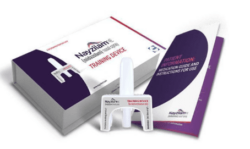
Inspired by patients. Driven by science.
At UCB, we come together every day to work, laser-focused, on a simple question: How will this create value for people living with severe diseases? Patient value is not just what we say, but how we how we live. It is our culture of care, embodied by our patient value strategy. That’s because how we do business – from discovery to development to delivery – has been transformed and redesigned around the patient and their individual experience. Patients are at the heart of everything we do, inspiring us, driving our scientific discovery, and leading us to rethink the patient experience. By fulfilling our commitment, driving innovation, and providing patients a meaningful experience, more impactful solutions are on the horizon.
With a team of approximately 7,500 employees and operations in nearly 40 countries, we are a global biopharmaceutical company investing more than a quarter of our revenue in cutting-edge scientific research to meet unmet patient needs. Global headquarters are in Brussels, Belgium, with U.S. headquarters in Atlanta, Georgia. Additional U.S. UCB sites include global clinical development in Raleigh, North Carolina, research supporting UCB’s pipeline in Boston, Massachusetts (Bedford and Cambridge), Seattle, Washington, and Durham, North Carolina as part of our acquisition of Element Genomics, as well as an office in Washington, D.C.


Learn more about our NAYZILAM® (midazolam) nasal spray, CIV and request a training kit, which includes information to help you and your loved ones practice how to use the nasal spray when a seizure cluster strikes. This training kit does not include actual medicine. Visit our website to request.
NAYZILAM is a prescription medicine used for the short-term treatment of seizure clusters (also known as “acute repetitive seizures”) in patients 12 years of age and older.
IMPORTANT SAFETY INFORMATION
Important Safety Information you should know about NAYZILAM® (midazolam) nasal spray, CIV
What is the most important information I should know about NAYZILAM?
NAYZILAM is a benzodiazepine medicine. Taking benzodiazepines with opioid medicines, alcohol, or other central nervous system (CNS) depressants
(including street drugs) can cause severe drowsiness, breathing problems (respiratory depression), coma, and death.
Get emergency medical help right away if any of the following happens:
Do not drive or operate heavy machinery until you know how taking NAYZILAM with opioids may affect you.
Risk of abuse, misuse, and addiction. There is a risk of abuse, misuse, and addiction with benzodiazepines, including NAYZILAM, which can lead to overdose and serious side effects including coma and death.
Physical Dependence and withdrawal reactions. Benzodiazepines, including NAYZILAM can cause physical dependence and withdrawal reactions, especially if you continue to use NAYZILAM daily. NAYZILAM is not intended for daily use.
NAYZILAM can make you sleepy or dizzy and can slow your thinking and motor skills.
Do not drive, operate heavy machinery, or do other dangerous activities until you know how NAYZILAM affects you. Do not drink alcohol or take other drugs that may make you sleepy or dizzy while using NAYZILAM without first talking to your healthcare provider. When taken with alcohol or drugs that cause sleepiness or dizziness, NAYZILAM may make your sleepiness or dizziness worse.
Like other antiepileptic medicines, NAYZILAM may cause suicidal thoughts or actions in a very small number of people, about 1 in 500. Call a healthcare provider right away if you have any of these symptoms, especially if they are new, worse, or worry you:
How can I watch for early symptoms of suicidal thoughts or actions?
Call your healthcare provider between visits as needed, especially if you are worried about symptoms. Suicidal thoughts or actions can be caused by things other than medicines. If you have suicidal thoughts or actions, your healthcare provider may check for other causes.
What is NAYZILAM?
Do not use NAYZILAM if you:
Before you use NAYZILAM, tell your healthcare provider about all your medical conditions, including if you:
Tell your healthcare provider about all the medicines you take, including prescription and over-the-counter medicines, vitamins and herbal supplements.
How should I use NAYZILAM?
What should I avoid while using NAYZILAM?
See “What is the most important information I should know about NAYZILAM?”
What are the possible side effects of NAYZILAM?
NAYZILAM may cause serious side effects, including:
The most common side effects of NAYZILAM include:
Please see additional patient information in the Medication Guide. This information does not take the place of talking with your healthcare provider about your condition or your treatment. For more information, go to www.NAYZILAM.com or call 1-844-599-2273.
These are not all the possible side effects of NAYZILAM. Call your doctor for medical advice about side effects. You may report side effects to FDA at 1-800-FDA-1088.
NAYZILAM® is a registered trademark of the UCB Group of Companies.
©2021 UCB, Inc., Smyrna, GA 30080. All rights reserved. US-P-NZ-SC-2100071